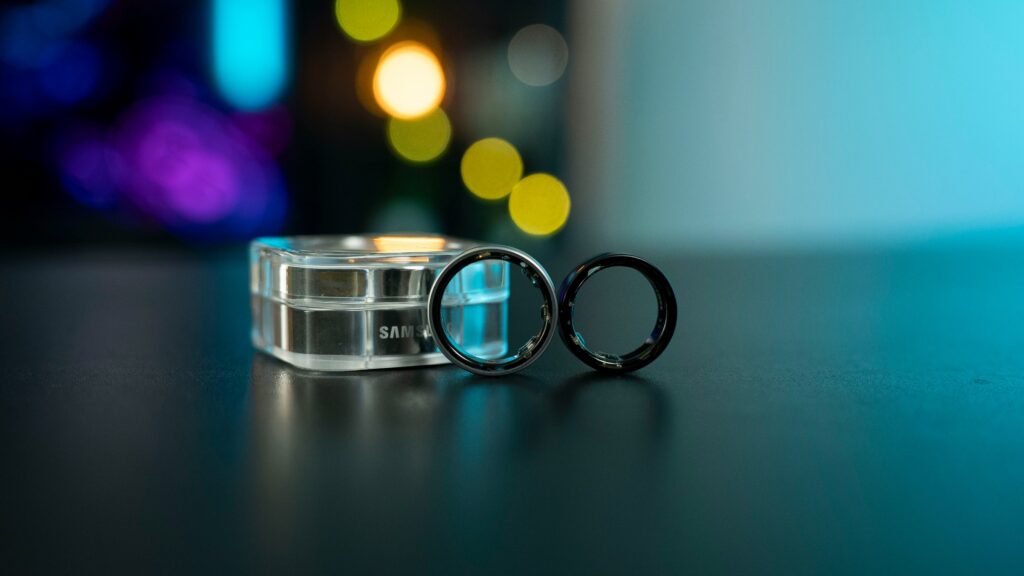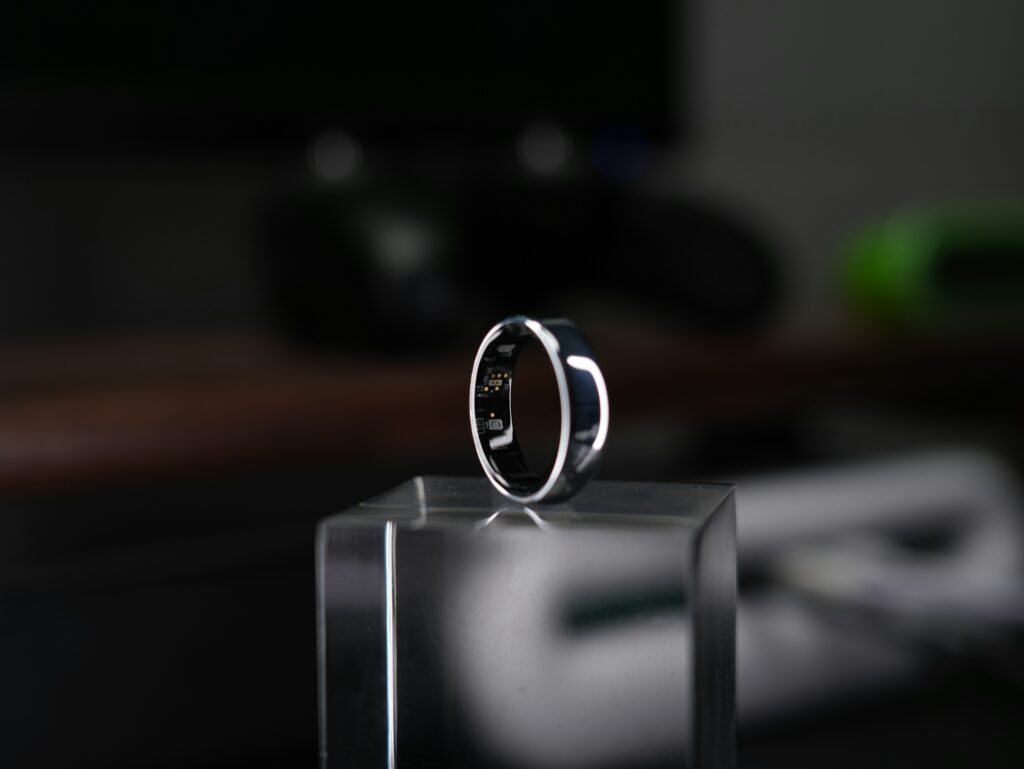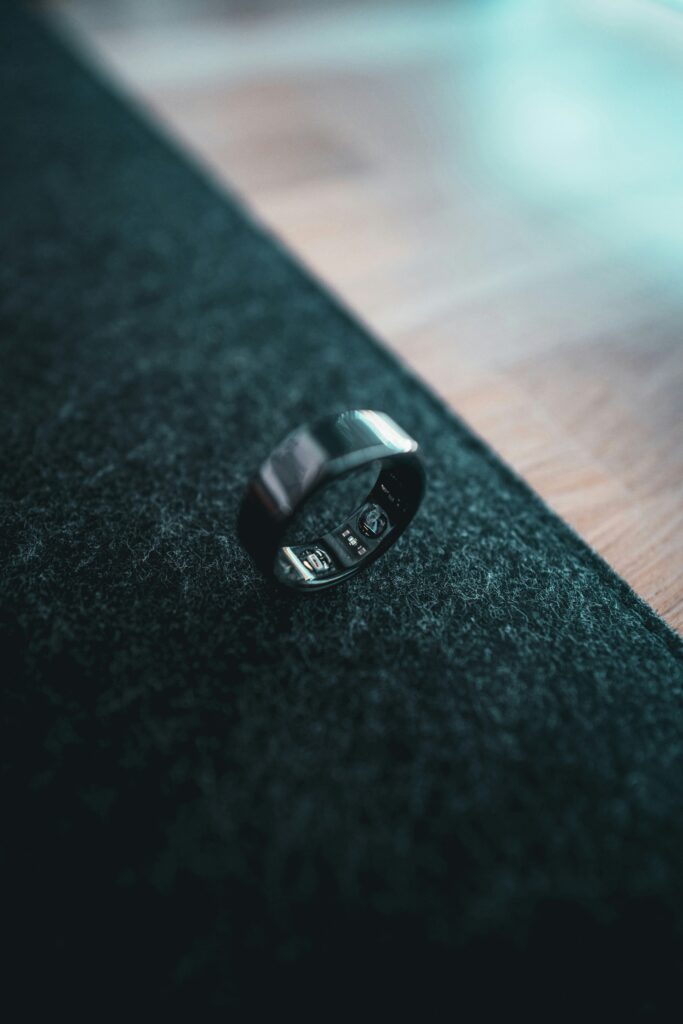Wearable technology just got a major upgrade—smartwatches are no longer the only players. From screenless smart rings to full-featured fitness tracking ring, it’s time to compare what’s really better for your health, comfort, and lifestyle.
The Rise of the Fitness Tracking Ring
You’ve probably seen smartwatches everywhere by now. On your friend’s wrist. In the gym. On your PE teacher. They’re packed with features—from heart rate tracking to full-blown smartwatch notifications.
But there’s a quiet revolution happening in the world of wearable technology.
Enter the fitness tracking ring.
It’s tiny. It’s sleek. And it’s changing how we think about health wearables. No big screen. No wrist straps. Just a minimal wearable tech that fits on your finger and keeps tabs on your body 24/7.
So, should you go for a smart ring or a smartwatch? Let’s dig into the ultimate wearable tech comparison.
What Exactly Are These Gadgets?
What Is a Smartwatch?
A smartwatch is your wrist-based command center. It combines a watch, smartphone, and health tracker all in one device. Most smartwatch features include:
- Text and call notifications
- Music control
- GPS for outdoor workouts
- Advanced sensors like SpO₂ and ECG
- Coaching and activity tracking
The latest models like the Apple Watch Series 10 and Samsung Galaxy Watch 7 are loaded with wearable AI and advanced wearable sensors, turning your wrist into a fitness and productivity hub.
What Is a Smart Ring?
Now, imagine a ring that’s not just stylish—but smart. A smart ring is a compact device you wear on your finger, and it’s loaded with sensors that track your:
- Sleep stages
- Heart rate
- Readiness levels
- Body temperature
- Activity intensity
And yes, we’re talking about serious health monitoring gadgets here—rings like the Oura Ring and Ultrahuman Ring Air offer in-depth passive health tracking without you lifting a finger (literally).
Some even support gesture control features or double as a screenless wearable for contactless payments and app authentication.



Which One Feels Better to Wear?
The Case for Smart Rings: Lightweight and Low-Key
- Super comfy for 24/7 wear
- Looks like a regular ring (stealth mode activated)
- Ideal for sleep tracking wearables
- Great for people who don’t like screens buzzing constantly
- Perfect for building a routine around fitness tracking ring metrics without distraction
With a smart ring, you don’t feel like you’re wearing tech. You feel like you’re just… living. That’s what makes them amazing discreet health trackers.
Note: Ring sizing is crucial. Too loose? Inaccurate data. Too tight? Uncomfortable. Many brands send out a sizing kit to get it just right.
The Case for Smartwatches: Classic and Connected
Smartwatches are still top-notch when it comes to:
- Smartwatch notifications and app controls
- Live tracking during workouts
- GPS-based features for runners, cyclists, and hikers
- Swappable styles and personalization
If you’re constantly checking updates or streaming music while you move, a smartwatch might be the more familiar choice.
Features That Matter: Functionality vs. Focus
Smartwatches:
These wrist companions give you:
- Calls, texts, and app control
- In-depth fitness stats
- GPS and location tracking
- Workout plans and smart coaching
- Smartwatch with GPS for outdoor runs and cycling
They’re basically wearable fitness trackers that also let you manage your day.
Smart Rings:
Don’t let their size fool you. These rings handle:
- Sleep and recovery tracking
- Heart rate and body temp monitoring
- Fitness tracking ring metrics like steps and activity intensity
- Menstrual cycle tracking
- Vibration-based alerts for calls or events
Devices like the best smart ring models (Oura, Ultrahuman, RingConn) also include smart ring sensors for SpO₂, temperature shifts, and even wearable biometric devices for stress tracking and metabolic feedback.
They’re not here to distract. They’re here to deliver insights that matter.
Which Tracks Health More Accurately?
Heart Rate: Smart Rings Take the Lead at Rest
Because fingers have better blood flow and thinner skin, smart ring accuracy tends to be higher when you’re chilling, sleeping, or resting.
Some studies suggest that fitness tracking rings are better for people with darker skin tones due to reduced melanin interference on fingers compared to wrists.
Sleep: Rings Are Built for This
Lightweight, screenless, and super accurate overnight. If you’re after best wearable for sleep tracking, rings are the GOAT.
They combine motion, body temp, and heart rate to paint a complete sleep picture.
Workouts: Watches Take the Win
If you’re into serious training, smartwatches are better for:
- Reps and sets
- Route tracking via GPS
- Live coaching
- Zone-based heart rate tracking
For exercise performance, smartwatch vs smart ring? The watch usually wins.
Battery Life: No Contest
Smart Rings = Battery Bosses
- Most last between 5–7 days
- Some even stretch to 12+ days
- Nearly two weeks of continuous fitness tracking ring data—no charging interruptions
Smartwatches = Juice Hogs
- Daily charging is pretty normal
- Especially with constant tracking and GPS
- Even the best smartwatch 2025 contenders need more frequent charging than rings
Safety, Privacy & Style
Rings Keep It Private
- No screen = no prying eyes
- Your wearable health devices data stays hidden
- Some rings even double as smart keys or two-factor login tokens
Watches Put It All Out There
- All your texts, calls, alerts show up on your wrist
- Convenient? Yes.
- Private? Not really.
The Price Tag Showdown
- Smart Rings: $100–$350, with optional subscriptions
- Smartwatches: $150–$700 depending on brand and features
Both can get pricey—especially when you start looking into premium models with AI and advanced wearable sensors.
Where’s This All Heading?
Here’s the exciting part: the future of wearable tech is just heating up.
What’s Next for Smart Rings:
- Blood pressure and glucose monitoring
- Real-time hydration checks
- Wearable AI that offers daily health suggestions
- Gesture control ring features for interacting with your phone or TV
- Charging from your body heat or movement
- Stress and emotion tracking via sweat or EDA signals
What’s Next for Smartwatches:
- More accurate medical-grade tools
- Expanded AI-powered coaching
- Health tracking devices that sync directly with your doctor
Across the board, the goal is smarter, quieter, and more human-first wearable experiences.
So, Which One Should You Wear?
Choose a Fitness Tracking Ring if:
- You want 24/7 passive tracking without distractions
- You care more about sleep tracking wearables and recovery
- You want comfort and style without screens
- You’re interested in futuristic tech that doesn’t interrupt your life
Choose a Smartwatch if:
- You love real-time updates and quick control
- You work out often and want detailed training stats
- You want your device to replace parts of your phone
- You rely on GPS or smartwatch health features
Or—Combine Both?
Some people wear both: ring at night, watch during the day.
A bit pricey, but you get the best of both tech worlds.
Final Thoughts: Finger or Wrist?
It’s not really a battle between the smart ring vs smartwatch. It’s more about choosing what fits your vibe.
- Want something sleek, silent, and super smart? Go with a fitness tracking ring.
- Want a powerful, connected wrist tool? Smartwatch it is.
No matter what, the real winner here is you. Because the future of wearable technology is all about giving you control, insight, and support—without stealing your attention.
FAQs: Quick Answers
Q: Can I track workouts with a smart ring?
You can track activity levels and intensity, but not reps, sets, or routes. That’s where smartwatches shine.
Q: Are smart rings waterproof?
Many are water-resistant, but double-check before swimming.
Q: Do smart rings need charging often?
Nope. Most last a full week or more, depending on usage.
Q: Do smartwatches have more apps?
Yes. They’re built for interactivity, including calls, messages, music, and third-party apps.
Q: Which is better for privacy?
Fitness tracking rings offer better privacy with no screen or alerts visible to others.
Want to Explore More?
- Oura Ring
- Ultrahuman Ring Air
- RingConn Smart Ring Gen 2
- Apple Watch Series 10
- Samsung Galaxy Watch 7
- Garmin Forerunner Series
The future is wearable—and it’s on your finger, your wrist, or maybe both.
